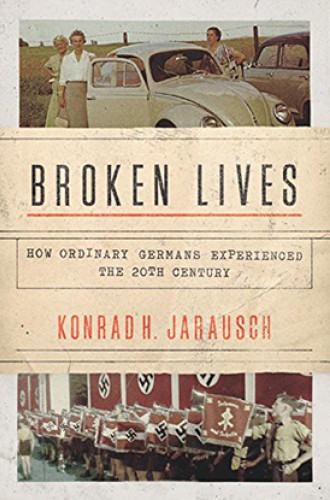Coming of age during the rise of Hitler
A history of the 20th century told by ordinary Germans.
When my grandfather retired, he immersed himself in two tasks: raising money for his alma mater, Caltech, and writing three volumes of memoirs. His life was typical for a businessman during the postwar boom, so the contents of the memoirs do not shock. They include stories about education, war service, family, deep-sea fishing, decadent office parties, and his ascent to being a high-level executive in one of the largest corporations in America. The memoirs had to be privately published, and I doubt that anyone—other than myself and a few relatives—has ever read them. It’s possible that one day some historian researching the social world of American capitalism will recognize them as a superb source.
Konrad Jarausch, perhaps the most influential Anglophone historian of modern Germany, has built his newest book out of such memoirs. Jarausch seized on the idea after an anonymous Amazon reviewer with the ego to nickname himself “Spinoza” trolled Jarausch’s earlier book Out of Ashes: A New History of Europe in the Twentieth Century (Princeton, 2015) and criticized it for concentrating on high politics at the expense of “experience on the streets.” Broken Lives responds to this criticism by putting “ordinary people back into the well-known narrative of major events . . . [in] a sustained look at unexceptional lives.”
Jarausch’s book is a prosopography. He examines the reminiscences of 82 Germans (not all of them German citizens), born during the Weimar Republic (1919–1933) who wrote autobiographies in old age, usually at some point after 1989. These memoirists are mostly normal folks: professors, pastors, bankers, housewives, Protestants, Catholics, and Jews, from all over German-speaking Europe. I recognized the name of only one—intellectual historian Peter Gay. A number of the sources are personal friends of Jarausch. (Jarausch lived the first two decades of his life in West Germany, but he was born seven years too late to serve as a source for his own book.)






